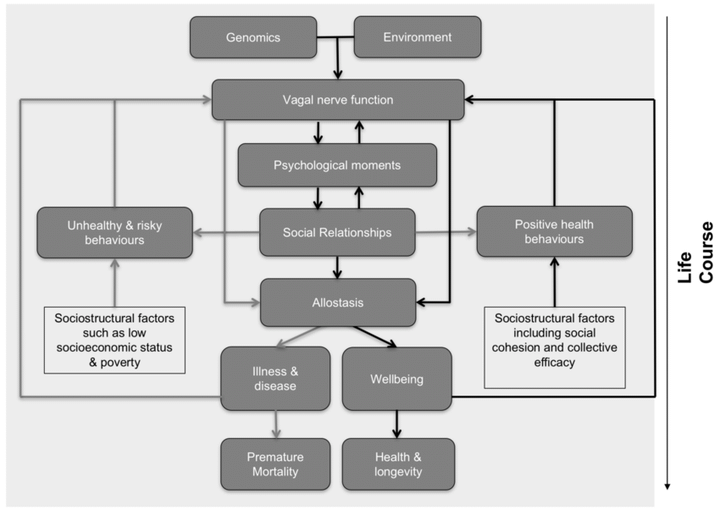Social Ties, Health and Wellbeing: A Literature Review and Model.
 GENIAL model workflow
GENIAL model workflow
Resumen
Humanity is facing an increasing burden of chronic disease and an ageing population that will lead to more years lived with disability. Dealing with these issues is difficult, especially if we consider the deterioration of social ties and the decline in social connectedness, which may also impact on health and wellbeing. However, research on the association between social ties and health outcomes has been characterized by conceptual difficulties, controversy and simplistic models. Here, we (1) review the literature on the associations between social ties and health outcomes, (2) identify various mechanisms through which these associations may arise and (3) propose a model on which future research activity could be based. We observe that social ties are an important contributor to health outcomes that may rival the effects of many traditional risk factors including smoking, alcohol consumption and physical activity. A complex network of behavioural, psychological and physiological mechanisms drives the health of individuals, and sociostructural factors will either facilitate or impede desired health outcomes within community ecosystems. The GENIAL [genomics-environment-vagus nerve-social interaction-allostatic regulation-longevity] model is proposed, and important mediators and moderators are characterized along a pathway to wellbeing and longevity. A major regulatory role is given to the vagus nerve—indexed by heart rate variability—as it is responsible for a host of psychological and physiological processes that influence social ties, subsequent health and wellbeing. Future research needs to move beyond the disciplinary dilemma, initiate multidisciplinary exchange and facilitate new lines of interdisciplinary enquiry. We further argue that extending beyond the self by focusing on relationships with others and our connections to the environment will aid a much-needed transition to a more caring and understanding world.